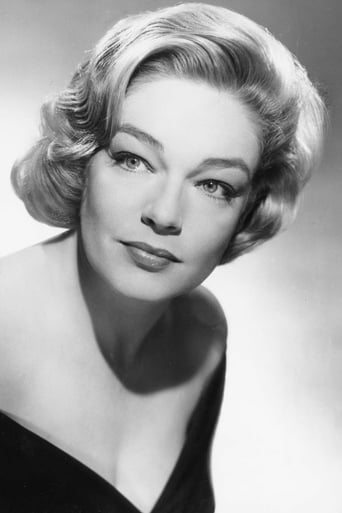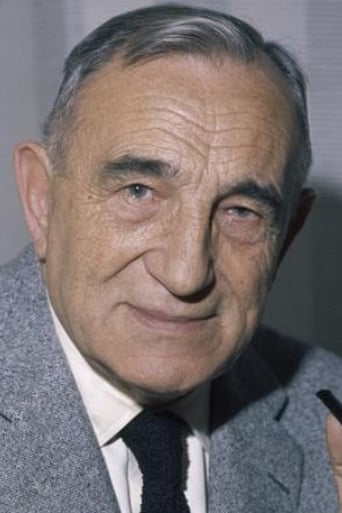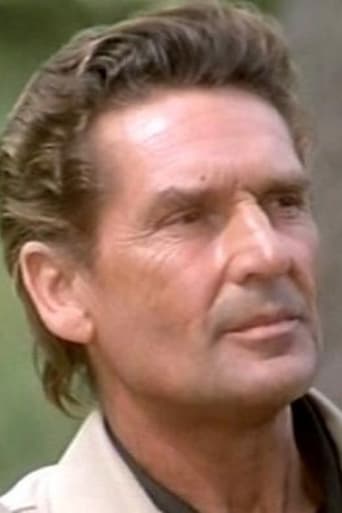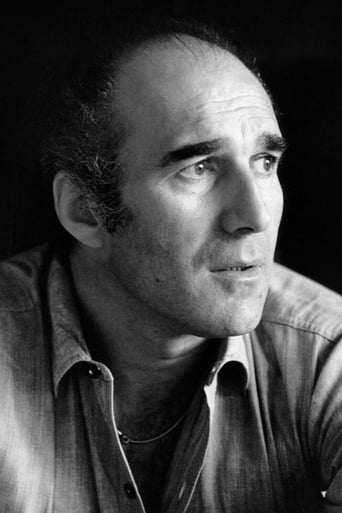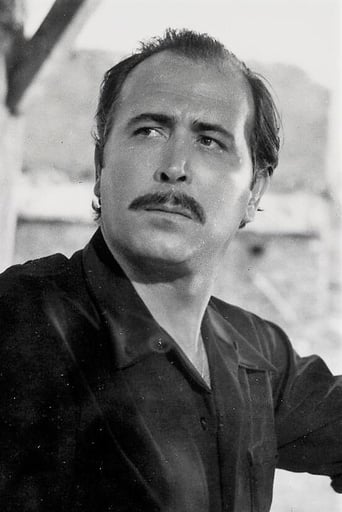GamerTab
That was an excellent one.
Mjeteconer
Just perfect...
Intcatinfo
A Masterpiece!
ThedevilChoose
When a movie has you begging for it to end not even half way through it's pure crap. We've all seen this movie and this characters millions of times, nothing new in it. Don't waste your time.
Bob Taylor
I often turn to the Time Out Film Guide, to see what they think of films... They got it wrong for this one: "Its garish, vicious action beats Sam Fuller at his own game". Well it does no such thing. This is sub-par Bunuel at best. The first part, set in the little town in Mexico is easily eclipsed by Treasure of the Sierra Madre, a much funnier and tougher film. Just think of the interplay between Bogart, Walter Huston and Tim Holt and grimace at the clunky efforts of Marchal, Vanel and Piccoli. From a John Huston classic, we pass to a whimsical jungle story that Howard Hawks could have told with much better pace and wit (I think of Hatari!). Oh the waste of all these talented people.Simone Signoret has a thankless part of a prostitute (which she played much better in Dédée d'Anvers), a misconceived part that does not fit in the story very well. Piccoli cannot play a priest and should have known better than to try. He is much better as a libertine--he played Sade in La voie lactée. Gérard Philipe would have been much better as the priest. Marchal is no great shakes but at least fits the part. He reminds me a bit of Stewart Granger. Vanel is somewhat at home as the old prospector; at least he had often played action roles.
craig hill
Bunuel's Garden of Eden revisited moves in reverse from the hell of present day back to the Garden en route to the "next life", where the survivors of the Garden of Death expect a better world.The five escaping through this Garden are (1) the modern evil "Adam" (Chark) who, in a film first, flips the bird to the military, then roughs up (2) The Father for intervening to protect (3) his deaf mute daughter ("Eve"); (4) the handsome Priest/Savior, acting with the authority of a modern corrupt God on Earth taking the side of power and wealth over the oppressed; and (5) the well-named Djinn, Demon Temptress. Examples how well the story works within this paradigm:*The Father explains to his daughter (Eve) his plan to take her with him in a return to Heaven (France), where miracles will occur in ear doctors' offices. *Adam is (otherwise inexplicably) taken into the chapel where he is forced to kneel before the Savior/Priest before being taken in for interrogation for robbing the bank.*The Savior refuses to try to raise the dying rebel from his death in the dungeon despite Adam's pleas, instead offering dogmatic prayer which the savvy rebel bitterly rejects.*Just to make sure we see the extent of the "Fall" under the rule of Christianity, justice is delivered against the weak and the dying by the goons of the corrupt in firing squads. *The Savior barges in on Eve while she is half-dressed looking for The Father to convince him to surrender to the corrupt military, and sacrifice himself to save the innocent (his own role in the Bible), even tho The Father is innocent as well. He asks in response to the Savior "What will become of my daughter?" The Savior's conflict of interest becomes clearer in the Garden as he tries to usurp The Father and take his place in the relationship with Eve. The Savior (inconsistently, as in the Bible) saves The Father by pretending to be the lover of the demon Djinn. *The Father grows increasingly batty throughout the film, falling in love with the demon Djinn and suffering from a head wound. Bunuel suggests the oxymoron of the single male parent/creator is evidently losing his mind. *On the boat to the Garden, the Savior asks Adam to drop him off at a native village. Adam rebukes him, telling him he would become their taskmaster. The Savior replies he would save their souls; Adam counters he would lead them to their exploiters. Clearly Bunuel paints the Savior enjoying zero moral authority in a society where he is worshiped while he works for the benefit of the wealthy. *As soon as he steps off the boat, walking toward the Garden, the Savior loses his power of authority to The Father---because the Old Testament story of the Garden predates him.*Eve's hair is tangled in the vines of the Garden; The Father rescues her. Adam picks up on her need for care, protecting her asleep in the rain by placing his hat over her head, in a triptych where we see Eve with her head leaning on his right thigh, in the center the rifle as phallus (Adam, according to the myth, being the physical father of us all) standing erect between his legs, with the Djinn leaning on his left thigh, whom he does not protect. *The Father is dying and losing his senses, eventually deciding to kill everyone but Eve, giving up on Heaven as he burns his images of it in the flames warming them in the hellish Garden, its tinder the pages of the Bible torn out by the Savior, who then preaches a parable about (Easter?) eggs no one pays attention to, ending by inexplicably referring to his mother. There is no better image underscoring that this is Bunuel's take on the Garden of Eden and modern Christianity than when the Savior looks directly into the camera as he informs us he is the son of Mary.*The Father in despair explains to Djinn they're all guilty of the sins that led them to the Garden and accordingly there is no redemptive future to hope for. *Adam kills a serpent, for food, which only the creatures living in the Garden eat. He then discovers a horn of plenty, the crashed plane, as if a tree of life filled with death, providing them with food and clothing, even extravagant evening dress. *They discover the river crossing to "the other side", the Savior proclaiming it a miracle from god, the rest wise to his lack of authority, disbelieving and disagreeing with him. *Eve shows jewels to the Savior she found in the wreckage, as shiny as an apple. He seizes them from her, informing her he is taking her Father's place, giving her his watch in exchange, which she appropriately considers a worthless excuse for his theft. *The Father throws his own wealth in the water, the bag of diamonds he gave to Djinn, telling the Savior their deity is punishing them all. The Father then proves it. The Djinn puts on black evening wear (as if for her funeral), which Adam tells her prepares her for her next life on the other side of the river. The Father unleashes his Old Testament wrath, shooting and killing first the Djinn he had loved, then the Savior with his usual ineffectual pleas.*Eve convinces Adam not to kill her Father, who tries to stop Adam from taking Eve out of the Garden. In self-defense, Adam kills The Father, escaping his wrath by fleeing with Eve to the other side.The otherwise odd ending of this film makes perfect sense as Bunuelian religious allegory.
lastliberal
It's only now that we are able to enjoy many of the films Luis Buñuel made during his time in Mexico. Sure, it won't rank with his classics like Le Charme discret de la bourgeoisie or Cet obscur objet du désir, but this South American action thriller has a charm all it's own, Make no mistake, La mort en ce jardin, also has pure Buñuel elements to it, especially in the third act.Shark (Georges Marchal) and Djin (Simone Signoret) are certainly the most interesting characters in the first act. Shark may be a lout (Shut up Bible thumper!), but his skills come into play later. Djin is just hot.Great action in the jungle and a beautiful setting in Mexico.
Undead_Master
This is an astounding movie, and it's also one of Bunuel's most accessible films...The only problem I can find with this movie is that there are no good DVD copy's as far as i know. In the copy I watched, the subs were nearly unreadable in spots and the film had faded badly. Even with those problems, it's clear that this is one of his best movies. Maybe not in his top 5, but certainly in the top 8.Death in the garden is action packed. There's almost too much social commentary to call it a simple action film, but in every other way, that's what it is. This is a movie packed with emotional violence, physical violence, lurid sexuality (for the time)... Blood sweat tears and constant tension.. I think this may be the only Buñuel film with a protracted massive gun battle, and it's shot expertly. That scene alone proves without a doubt that Buñuel could have went to Hollywood and made big budget commercial films if he had wanted too. His command of cinematic technique would have put him right up there with the best of them, no matter what kind of movie he was working on.But don't get the wrong idea, this is still a Bunuel film in every way. It's full of social commentary, it has touches of surrealism, his shooting style is just as awesome as it's always been and the script is as sharp as a knife.This film has some of Bunuel's best characters ever. Sometimes the people in his movies serve as symbols for certain classes of people... Archetypal personalities... The characters from "Death in the garden" are molded to fit into certain category's, but they are more complex and multidimensional than usual. The moral Quandaries they face are difficult and the choices they make are always interesting. He's still examining the whole human race through the lens of a few characters, but his examination is more even handed than usual, and the characters are VERY memorable.In the end though, I would say this movie has a very pessimistic view of humanity. It's a movie full of meanness, savagery, and betrayal. Even the more likable characters are portrayed as mostly useless because of their lack of initiative. The second half of this film brings to mind the disintegration into animal behavior that you see in "The Exterminating Angel"...I could probably write for hours... Just suffice to say that this is one of his better works and it should be viewed more often... Hopefully someone like criterion will release this soon. It deserves to be re-discovered.

